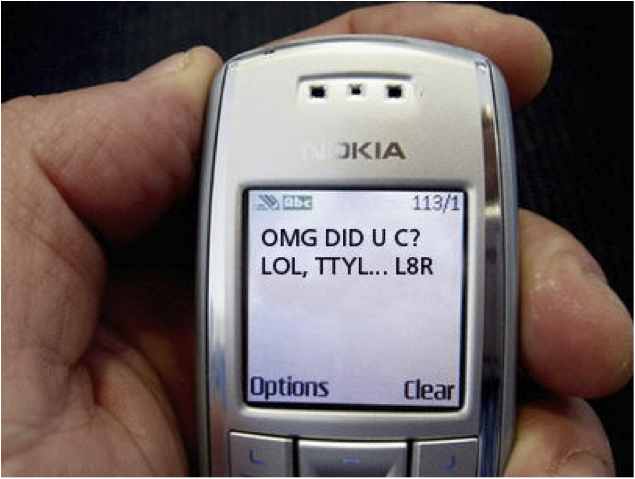The Evolution Of Language, Innit?
 As guardians of grammar, or the slightly more derogatory grammar police, it is our job to ensure language is maintained to the highest standards, adheres to all the rules, and stays the same it always has – innit?
As guardians of grammar, or the slightly more derogatory grammar police, it is our job to ensure language is maintained to the highest standards, adheres to all the rules, and stays the same it always has – innit?
Like Charles Darwin’s theory of the evolution of the species, the evolution of language is all about survival of the fittest, and us grammar geeks like to think the pen is mightier than the sword. Although we seem to be losing the battle, it’s not all bad news.
Rapid Changes
Call it evolution, devolution, or revolution, there’s no denying the fact that language and the way we communicate is changing at a fast pace, but this has always been the case, and probably always will be.
Academics have argued over the origins of language for centuries, and with no tape recordings, written word, or Facebook to turn to, evidence based on genetics, archaeological, and paleontological studies is limited. Despite this, most agree that what we do know is that early forms of communication probably started to appear around 100,000 years ago somewhere in sub-Saharan Africa with our ancestors the Homo sapiens.
Since then oral communication and written language has changed rapidly thanks to cultural, environmental, and technological influences, so it’s almost undistinguishable from our early predecessors’ version.
In recent history, the structures of sentences pretty much stay the same with 90 per cent of languages using a variation of subject, verb, and object, but it’s the words that make up that sentence that have altered so dramatically.
The Younger Generation
Without any in-depth knowledge about the rules of grammar and sentence structures, children remarkably have an innate sense of how to write and speak based on their experiences and environment – but as they grow, they create a language of their own, almost indecipherable from anything we understand.
Every generation bemoans the fact that the younger generation are lacking discipline, don’t respect their elders, and their clothes, music, and hair are often targeted with ridicule, but it’s them that often forge the way for change – and texting is largely responsible for that where language is concerned. Some would even go so far as to say that the youth of today is actually bilingual, and more advanced in their language skills than us older folk.
What Has Been Forgotten
But when was the last time you heard someone say whom in the right context, if at all. If used correctly, who is the subject and whom is the object, as in Who are you? or To whom it may concern.
Less and fewer are commonly confused, as are then and than, bought and brought, further and farther, can and may, affect and effect, lay and lie, and then there’s my pet peeve when people say should of or could of which has derived from the pronunciation of the abbreviated should have (should've) and could have (could’ve).
Texting Talk
 But this haphazard breaking of grammar rules is becoming more common, and even socially accepted in some cases, as we start to write how we speak thanks to the introduction of texting – there’s even a version of The Bible that has been translated into SMS format.
But this haphazard breaking of grammar rules is becoming more common, and even socially accepted in some cases, as we start to write how we speak thanks to the introduction of texting – there’s even a version of The Bible that has been translated into SMS format.
However, there’s hope for us grammar gurus still, as a recent study by online dating site OKCupid revealed that ‘netspeak’, bad grammar, and bad spelling were huge turn-offs – with the worst crimes against passion being "ur", "r", "u", "ya", "cant", "luv" and "wat".
But, on the other hand, if people were to speak in ye oldey English, they would be equally shunned by a romantic suitor for being pompous, dated, and a bit of a joke.
So, we endeavour to uphold the rules of grammar ourselves, and try not to cringe or strike out when they’re repeatedly broken, as the evolution of language has been going on for longer than we have, and will continue to do so – innit?!


